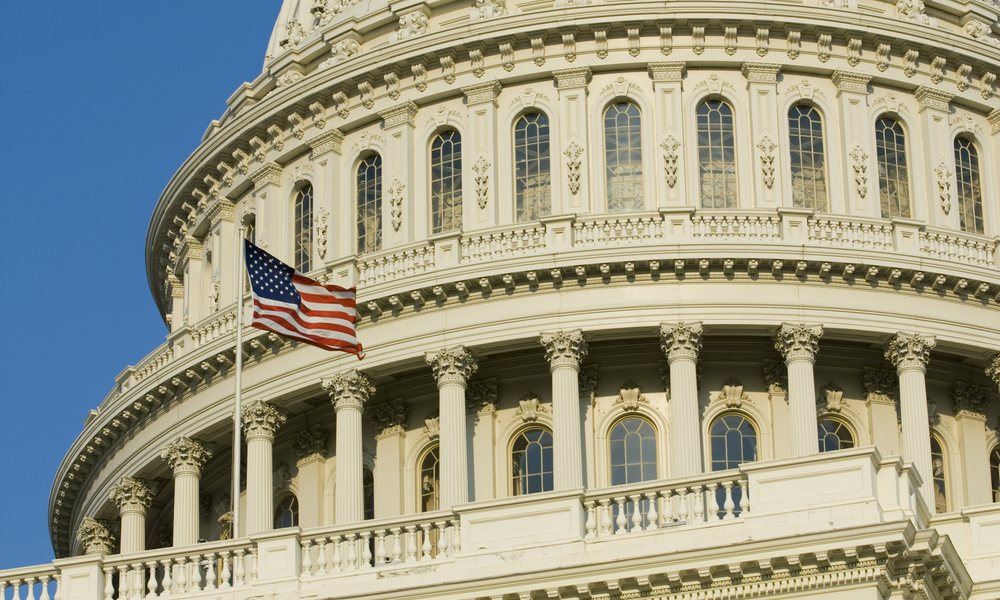Apple Will Soon Be in the Crosshairs of the US Justice Department
 Credit: Kent Weakley / Shutterstock
Credit: Kent Weakley / ShutterstockToggle Dark Mode
Regulatory wolves have been circling Apple for quite some time now, and it looks like the US is set to soon follow Europe’s lead in cracking down on many of the Cupertino company’s allegedly anticompetitive practices.
It’s been a long time coming, but the US Department of Justice (DoJ) is apparently ready to launch its antitrust lawsuit against Apple — a move that could come as soon as tomorrow.
According to Bloomberg, the suit is expected to be filed in federal court this week, according to “people familiar with the matter..” This would expand the Biden administration’s antitrust battles to encompass all four of the largest US tech giants.
The case against Apple is set to join a separate antitrust action between the Justice Department and Google for its monopolistic practices in search and advertising. Separately, the US Federal Trade Commission is going after Amazon and Meta for anti-competitive practices.
The impending lawsuit will put Apple in the crosshairs of antitrust regulators in an unprecedented way. While it’s not yet clear precisely what shape the case will take, it’s broadly expected to involve Apple blocking access to the iPhone’s hardware and software features. The DoJ has been leaving no stone unturned in trying to figure out exactly where Apple is most culpable of doing this.
Lawmakers have been scrutinizing the App Store since at least 2020, which is the most obvious battleground for such antitrust actions. It’s been the primary focus of the European Union’s new Digital Markets Act and the area that Apple’s most vocal opponents have been clamoring about for years, citing unfair restrictions on apps and, of course, Apple’s 30% revenue cut for everything that’s allowed to be installed on an iPhone.
However, that’s far from the only area in which Apple has been accused of exercising too much control over its ecosystem. Earlier this year, a report in the New York Times revealed the DoJ was preparing to tear open everything Apple does to “protect the dominance of the iPhone,” from the way the Apple Watch is tied to working only with the iPhone to Apple’s refusal to allow third-party apps to access iMessage and banks to write apps that can handle payments directly through the NFC chip.
At the time of that report, the Justice Department’s antitrust division was still reviewing the results of the longstanding investigation into all these areas and hadn’t yet reached a final decision on whether it would proceed to a lawsuit or what aspects of Apple’s policies such a lawsuit might try to address.
The key to such a lawsuit would be making a case that Apple holds a dominant market share in each of the areas under scrutiny. Apple has always ?vehemently denied? that position.
Apple does not have a dominant market share in any market where we do business. That is not just true for iPhone; it is true for any product category.Tim Cook
Still, there’s a lot of ground to cover here, and the DoJ’s position may differ from that of the European Commission. For example, the EC left iMessage out of the Digital Markets Act because it wasn’t considered a dominant platform in Europe compared to others like WhatsApp. However, iMessage is much more popular in the US, and the controversy over Beeper Mini trying to access iMessage without Apple’s permission has drawn the attention of the FTC and DoJ.
While Beeper Mini’s approach was a clear violation of Apple’s policies and possibly even cybersecurity laws — the tool was effectively hacking into servers owned and controlled by Apple — it highlighted the point that Apple’s control over iMessage could be considered anticompetitive not for blocking Beeper Mini, but for failing to provide ways for other platforms to play nicely with its messaging service.
That’s only one of several fronts on which the DoJ will likely pursue Apple. In addition to the App Store, which has had a bullseye on its back for years, the agency is said to have also interviewed executives from other companies who have felt disadvantaged by Apple’s policies, including Tile regarding Apple’s AirTags, Spotify over Apple Music, bank and fintech executives who want Apple Pay opened up, developers upset about Apple’s stance on cloud gaming services, Garmin users who are frustrated their smartwatches don’t work properly with their iPhones, and Meta’s challenges to Apple’s Privacy Features.








